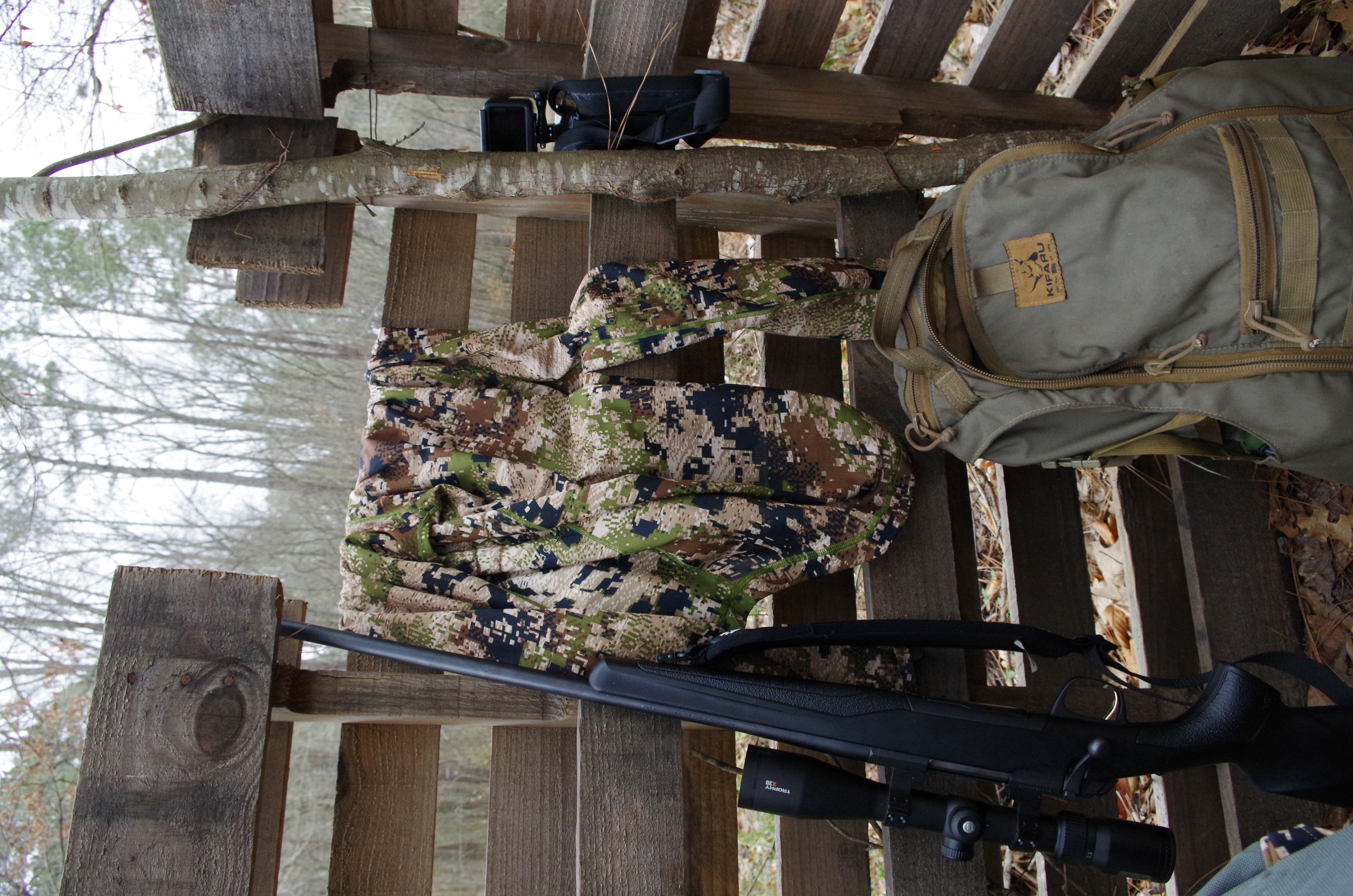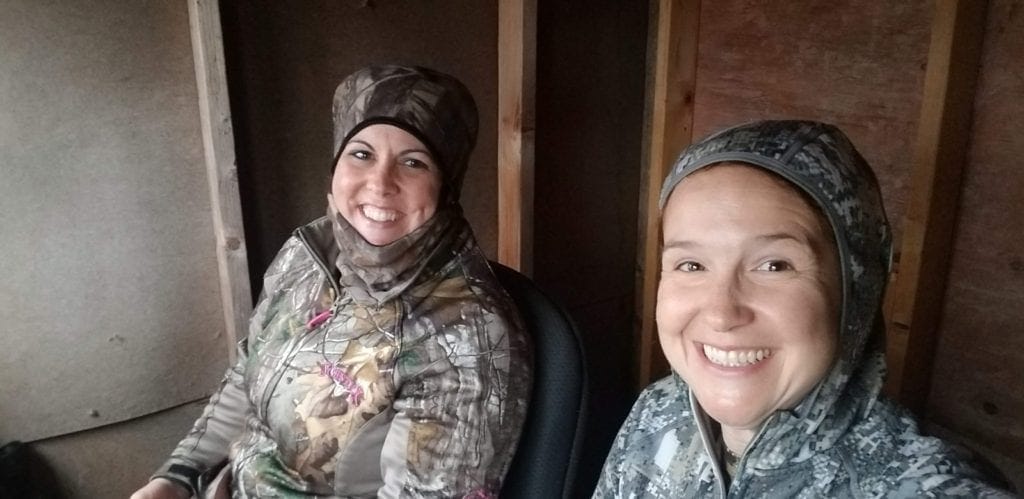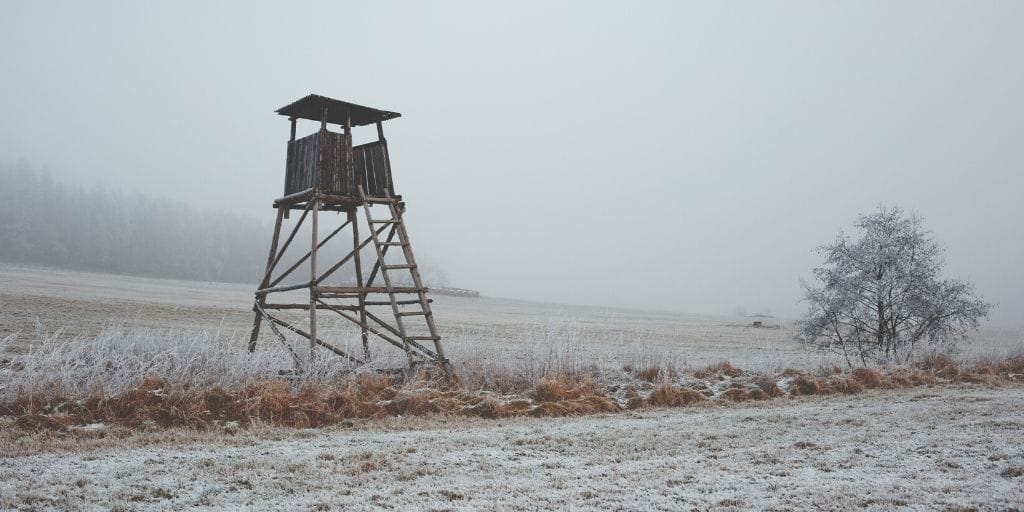Hunting out of a blind, either pop-up or permanent can be a great way for new hunters to start. The great thing about a blind is that it can hide most of your movement if you are an antsy hunter. Over the years, hunting in blinds, I have found these main categories of mistakes; movement, noise, distraction, and being unprepared.

Mistakes You Make in the Blind
Being unprepared.
When I first get to the blind, I try to get myself ready to take a shot. You never know if that buck will come in right after you arrive. My preparation steps include: making sure my seat is in the right spot and ensuring that I can quietly fire my weapon. There is nothing like slamming your elbow into the back wall of your blind, catching your broadhead in the netting, or slamming your gun into the window/base of your blind when the excitement of an animal approaching gets to you.
To prevent these buck fever moments, I knock an arrow and pull back my bow (then let down). When I am gun hunting, I always check my ability to pick up my gun and place it. I tend to also bring an extra shirt or hat to put under my gun rest to prevent the noise during placement. I also lay out all my snacks and extra clothes. This way, I do not have to have any extra cloth or zipper sounds when I eventually become cold or hungry.
Movement.
Movement is a big mistake that many hunters make in a blind. The design of most blinds is to hide you and you get complacent. Movement is most detrimental when waterfowl hunting. There is nothing more disappointing than watching that duck or goose spoon their wings, see you grab your gun, or look up, and change their mind. It is important in the waterfowl blind to be still and wait until the animals are within range. This can be a hard transition from the practice field where we follow our target until we are ready to shoot. These animals are often well-educated, and you must be somewhat smarter than them to get them to come into range. Minimizing your movement inside the blind is also important in big-game hunting. This relies on the placement of your blind.
On my Scimitar Oryx hunt, I realized too late that my blind was placed such that the setting sun shone right inside, highlighting me to the animals that were coming my way. Because of this, I had to change my weapon from my trusty bow to a gun so I could pick it up quickly and execute the shot before the animal could run away.
Noise.
Noise, like in all hunting situations, can be your downfall. I find that most people get too comfortable in a blind. We chat. We start watching videos. And, we forget that the blind is not our house that blocks all the noise to the outside.
Distraction.
The last mistake hunters make in blinds is distraction. Now that cell phones and cell service is expanding, it is easy to pass the time with our phones. I wish I could say it never happens. But, I do not know how many times I have been engrossed in my book on my phone only to look up and see a deer right in front of me. When in the stand or blind, I try to remind myself that this is a time to disconnect. It’s a time to enjoy the nature around me, and to allow myself the time to take in all the nature around me rather than enjoying a book that I could read at home.
Read More: 9 Mistakes Novice Hunters Make

As new, and seasoned hunters, we all make many mistakes in the process of every hunting season. Only through trial and error have I learned these many mistakes that I, and others with me, make in the blind. I use these as reminders of things I need to be mindful of every time I step into one.





2 thoughts on “Four Mistakes You Make in the Blind”